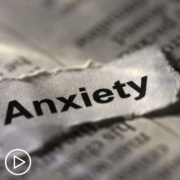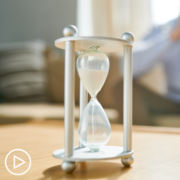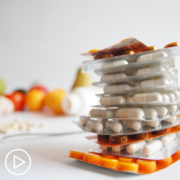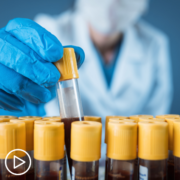How Does CLL Affect the Immune System?
How Does CLL Affect the Immune System? from Patient Empowerment Network on Vimeo.
Chronic lymphocytic leukemia (CLL) expert Dr. Seema Bhat explains how a patient’s immunity is affected by the disease and strategies for management.
Seema Bhat, MD is a hematologist at The Ohio State University Comprehensive Cancer Center – The James. Learn more about Dr. Bhat.
Related Resources:

|

|

|
Transcript:
Katherine:
Finally, our last question. One audience member would like to know more about how CLL affects the immune system, including wound healing, and how does CLL impact this?
Dr. Bhat:
So, patients with CLL usually have a weaker immune system. The lymphocyte, which is the white cell, which is affected in CLL, is an important part for an immune system, and due to the presence of disease, these lymphocytes – although there are lots of them in patients with CLL, they tend to be non-functional.
“Functionally incompetent,” that’s what they’re called. And it leaves the patient’s immune deficient and susceptible to a variety of infections. Also, the lymphocyte is component – the B lymphocyte is one component of immune system. There are other components like T lymphocyte, antibody, NK cells. There’s cross-dock between the B cells and what we call, the “microenvironment,” which is made of the T cells. This cross-dock is deficient in patients with CLL, again making them immune-deficient and susceptible to infection. So, that’s one impact on their immune system.
Sometimes, there’s something else happening in the immune system where the immune system can go crazy, or wacky, and start attacking the patient’s own blood cells leading to, for example, decrease of hemoglobin or platelets, because these are immune complications. And also, due to a weak immune system, patients with CLL can have delayed wound healing, which also predisposes them to infection.
So, being aware of these complications is important and using appropriate precautions can be very helpful. Again, because they have a weakened immune system, vaccines are very important. Using all measures to avoid infection, hand washing, staying away from patients, from people who are obviously sick, is very important. Sometimes, patients where we see they’re’ getting frequent infections, we can use what’s called, “IVIG,” intravenous immunoglobulin. These are pre-farmed antibodies which are injected into or infused into the patient at regular intervals every 4 to six weeks, which reduce the chance of these infections.














